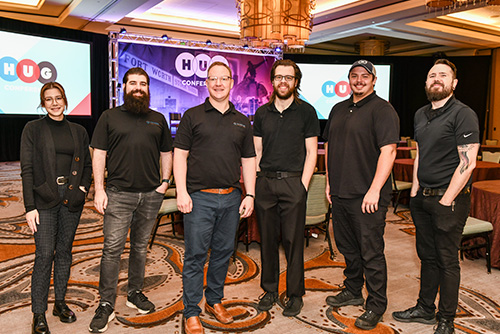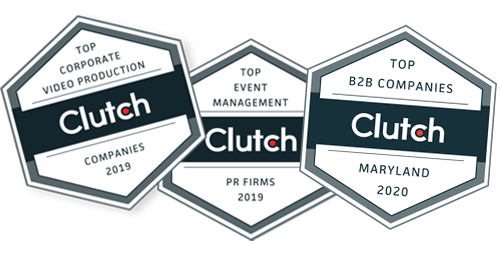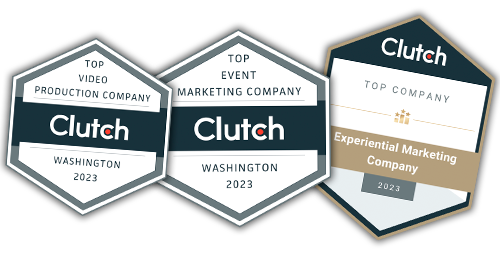 Congratulations! You’ve been hired, promoted or otherwise assigned to lead planning for one of your organization’s upcoming corporate events. You know that it’s important to get all of the details right, and you don’t want to miss any obvious priorities or potential hiccups.
Congratulations! You’ve been hired, promoted or otherwise assigned to lead planning for one of your organization’s upcoming corporate events. You know that it’s important to get all of the details right, and you don’t want to miss any obvious priorities or potential hiccups.
15 Steps to Corporate Event Success
So, what are some of the key things you need to include on your planning checklist? Here are fifteen key points that should make it onto your corporate event production checklist in order to help you ensure success:
1. Clearly define the goals and objectives of the event, as well as the target audience and message.
2. Determine priorities and factors impacting the date and then begin examining venues, dates and options as quickly as possible.
3. Create a series of action plans. Most people create two plans – one for producing the event and one for promoting (marketing) it.
4. Begin developing budgets early on, and make sure to start with production and promotion, then work backward. A common rookie mistake is to select the venue, catering and flowers – then take the remaining 10% of the budget that’s still left, and assign it for production and promotion. Instead, you need to reverse this and commit 90% of your budget for production and promotion up front.
5. Create a list of everyone involved in the event. This includes senior management, board members (for nonprofits or associations), planning teams or committees, vendors/partners, and sponsors as well.
6. Build out your master schedule – including a ‘run-of-show’ – to begin structuring the event components and identifying what other participants (speakers, panelists, keynotes, exhibitors) and media deliverables (printed programs, videos, audio, live streaming) will be involved.
7. Align your message, theme and story with the business strategy behind the event (see this article on strategies for planning successful corporate events for details).
8. Make a list of vendors required including your invitational ‘short lists’ and criteria for building your ‘long list’ based on vendor qualifications and expertise.
9. Prepare all necessary details to execute promotion early – such as sponsorship and exhibitor details, program logistics, arrival and departure schedules, room capacities and ticket pricing.
10. Set up a clear contract review and approval process. This is especially important if your top executives are sometimes in the habit of holding up decisions on ‘little things’. By creating the list of approval criteria up front, you reduce your risk of creating ‘crunch time’ problems with vendors later.
11. Build a clear event strategic plan with a clearly articulated creative strategy behind the event. Then share this with every vendor, both pre-selection and after they are on your team. This becomes the blueprint that keeps everyone on the same page.
12. Arrange practice sessions and dry runs, especially with the people least likely to want to do them: your speakers. Don’t let executives tell you they don’t need to practice or that they will be find without it. They won’t.
13. Commit as many resources to the background components for the event, as for the event itself. For example, video vignettes, lighting design and audio queues can make or break a successful corporate event production.
14. Designate one internal leader and one external vendor who will be in charge of the event’s actual execution on the day(s) themselves. No one can survive having too many cooks in the kitchen, or ending up with all of the cooks standing around while the kitchen burns. Savvy event managers often assign their corporate event production company to take the lead.
15. After the event, make sure to set aside time for an after-action review. What went well? What didn’t? What went well enough, but could have gone better? What was over-the-top successful? Document all of the feedback, insights, ideas and questions so you will be even better prepared for the next event from day one.
Building Your Checklist with Strategic Creative
One key to a successful planning checklist is to use a clearly defined methodology for event execution. One proven model is Strategic Creative, which was developed by the team at TalkingTree Creative. To learn more, please enjoy this three-article series about Strategic Creative:
> How Strategic Creative Leads to Successful Corporate Events [Article 1]
> The Layers of the Experience for Successful Corporate Events [Article 2]
> Showcasing the Power of Strategic Creative in Corporate Events [Article 3]
Learn more about corporate event production in Washington DC and Baltimore MD by contacting TalkingTree Creative today. Call us at 240.252.1200 or email Craig Weisbaum, President & CEO at craig@talkingtreecreative.com.
About TalkingTree Creative
Talking Tree Creative is an event production company that creates memorable experiences and lasting impressions on screen, on stage, and online. Headquartered in Washington D.C., TalkingTree Creative serves clients in the corporate, non-profit, association and government sectors as a leader in the event production field, infusing its work with elements of creativity, entertainment and engagement.
For more information, please visit talkingtreecreative.com. Follow TalkingTree Creative on Facebook, Twitter, Google+, and LinkedIn to stay up to date with our latest projects. Get a dose of visual inspiration by checking us out on YouTube and Pinterest as well.




